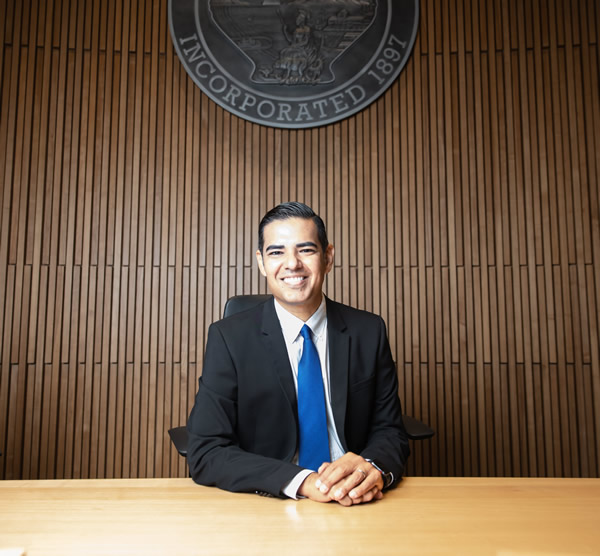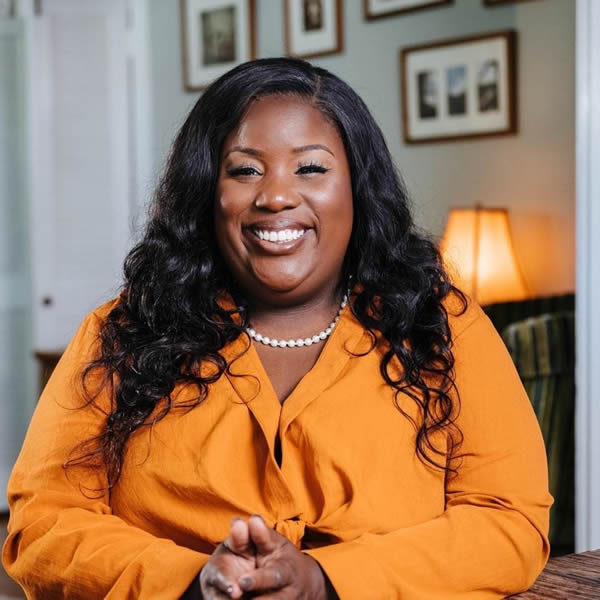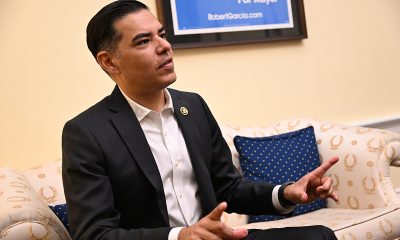Politics
Meet five trailblazing LGBTQ candidates of 2022
These queer politicians are running to make a difference

Each year, more LGBTQ candidates run and are elected to serve in local, state, and federal offices. And 2022 is shaping up to be no different.
As of the 2021 election cycle, there are more than 1,000 out LGBTQ representatives in the United States. Several LGBTQ trailblazers are running for office in 2022; here are five candidates to keep your eye on this year.
Jasmine Beach-Ferrara

Current position: Buncombe County Commissioner
Position sought: U.S. House of Representatives, District 14
After serving as Buncombe county commissioner in North Carolina, Jasmine Beach-Ferrera is making a change and running for the U.S. House of Representatives.
Beach-Ferrara, who is a lesbian, was elected in 2016 and reelected in 2020. She is also an ordained minister in the United Church of Christ and the founding executive director of the Campaign for Southern Equality.
She said it’s been a “tremendous honor” to serve as a county commissioner. During her tenure, Beach-Ferrara has been pushing for policy focused on early childhood education and opioid epidemic response, as well as pandemic relief projects.
“Local government is such a powerful part of how government happens in our country. It’s so immediate in terms of impacting people’s lives so quickly,” she said. “Personally, I really just love having the opportunity to serve in that way and it’s been a big motivator for me in terms of why I’m now seeking to serve on the federal level.”
If elected, Beach-Ferrara wants to focus on building bridges and listening to what her constituents need, which are needed priorities that have been lost under toxic leadership in the state, she said.
While on the campaign trail, Beach-Ferrara said being out has been a big strength for her.
“The power of people running and being out is that the moment you come out, you’re communicating a few things … honesty and authenticity, and letting people know that you are showing up exactly as you are,” she said.
Robert Garcia

Current position: Mayor of Long Beach, Calif.
Position sought: U.S. House of Representatives, CA-42
Mayor Robert Garcia is running for the U.S. House of Representatives.
As the mayor of Long Beach, Calif., Garcia forged a national model for testing and the COVID-19 vaccination rollout. Long Beach was the first municipality to vaccinate educators in California. He is the first mayor of Long Beach to appoint a majority of women to board and commissions, as well.
Garcia, who is gay, immigrated to the United States from Peru when he was five years old. Becoming a citizen was “the best thing that ever happened” to him, he said. Now, he is running for Congress to help give people the same opportunities given to him.
“Patriotism is about helping people. It’s about taking care of your neighbor. It’s about standing up for the values that made this country and that includes supporting kids like me who are immigrants,” Garcia said.
If elected, Garcia wants to focus on building infrastructure as he has as mayor, expand LGBTQ rights and provide pathways to citizenship for folks that are undocumented.
“I understand the immigration system because I went through it,” Garcia said. “I know how people struggle and how folks navigate a complex and burdensome system.”
Michele Rayner-Goolsby

Current position: Florida House of Representatives, District 70
Position sought: U.S. House of Representatives, FL-13
Former Civil Rights Attorney Michele Rayner-Goolsby wants to bring a fresh perspective to Congress.
Currently serving as the first out queer Black representative in the Florida Legislature, her priority is advocating for her constituents.
“People are hungry for a different type of leadership — that is rooted in community, that is rooted in transparency, that is rooted in accountability,” she said.
Rayner-Goolsby’s experience as a Black queer woman is her “best strength,” she said.
“I’ve had to fight and earn everything that I have ever had in my life,” she said. That shapes the way I think about policy and legislation.”
As a statehouse representative, Rayner-Goolsby has spearheaded COVID-19 vaccine pop-up distribution sites and passed legislation like an urban agriculture bill to bring community gardens to food deserts and a workforce development bill that establishes an apprenticeship approach to becoming a certified nursing assistant.
If elected, Rayner-Goolsby wants to build legislation that outlasts her tenure, she said. She wants to pass comprehensive voting rights legislation, environmental justice protections and address the affordable housing crisis.
“We have got to come up with creative solutions,” she said. “And we’ve got to have the political will to figure it out. It’s not the lack of resources, it’s the lack of political will.”
Brianna Titone

Current position: Colorado House of Representatives, District 27
Position sought: Colorado House of Representatives, District 27
Brianna Titone, an incumbent in the Colorado Legislature, is seeking reelection after serving District 27 for two terms.
Titone is the first transgender person to be elected to the Colorado Statehouse.
After seeing three trans people win elections in 2017, Titone was inspired to run for the statehouse seat. Her background as a geologist and personal identity combined to give her a unique and powerful skillset.
“As a scientist, I’m able to understand and look at the data,” Titone said. “And as a trans person, I know how to be empathetic to people’s issues and problems.”
One of her biggest accomplishments was bringing back and passing the bill banning the “Gay and Trans Panic Defense” after the legislation was nearly killed.
“I pleaded with the Senate and the House leadership to get that bill back on the schedule. And we were able to do it,” she said. “I wasn’t going to let that issue have to wait another year to be passed.”
Titone has been on the frontlines in pushing against efforts to remove trans kids from sports, as well.
“I’m a big advocate for communities coming together,” Titone said. “And sports is a great way for people to come together and rally around the people in their community. When we leave kids out or we force kids out of that kind of activity, we’re really undermining community.”
Todd Delmay

Current position: Entrepreneur
Position sought: Florida State House of Representatives, District 100
Todd Delmay, a father, husband, and entrepreneur, has been on the frontlines of LGBTQ advocacy for years.
Delmay, who is gay, adopted his son with his partner in 2010 when it was still illegal in Florida. Delmay’s husband adopted their son Blake as a single parent, and Delmay was told to bring friends and “blend in the background” to not arouse suspicion. Later that year the law was overturned and Delmay adopted Blake as a second parent, but the process was humiliating and upsetting, he said.
In 2014, Delmay and his partner were one of the couples that sued for the right to marry in Florida. In 2015, Delmay and his husband were one of the first gay couples to marry in the state.
“That was a pretty empowering moment,” Delmay said.
Delmay is excited to bring his unique perspective as a gay parent to the statehouse, he said. Adoption rights, for example, is an issue Delmay can speak to personally.
“When LGBTQ people are in the room, it changes the conversation,” Delmay said.
Delmay is the CEO of Delmay Corporation, an event technology and software company. If elected, Delmay hopes to support small businesses, pass legislation concerning the environment and fight for civil rights.
“It’s important that the legislature always reflect the people because there are so many different perspectives,” Delmay said. “And if we have any hopes of turning the state blue, we need to make sure that we are speaking to everyone and that the legislature represents everyone.”
Congress
House Democrats oppose Bessent’s removal of SOGI from discrimination complaint forms
Congressional Equality Caucus sharply criticized move

A letter issued last week by a group of House Democrats objects to Treasury Secretary Scott Bessent’s removal of sexual orientation and gender identity as bases for sex discrimination complaints in several Equal Employment Opportunity forms.
Bessent, who is gay, is the highest ranking openly LGBTQ official in American history and the second out Cabinet member next to Pete Buttigieg, who served as transportation secretary during the Biden-Harris administration.
The signatories to the letter include a few out members of Congress, Congressional Equality Caucus chair and co-chairs Mark Takano (Calif.), Ritchie Torres (N.Y.), and Becca Balint (Vt.), along with U.S. Reps. Nikema Williams (Ga.), Hank Johnson (Ga.), Raja Krishnamoorthi (Ill.), Delia Ramirez (Ill.), Joyce Beatty (Ohio), Lloyd Doggett (Texas), Eleanor Holmes Norton (D.C.), Josh Gottheimer (N.J.), and Sylvia Garcia (D-Texas).
The letter explains the “critical role” played by the EEO given the strictures and limits on how federal employees can find recourse for unlawful workplace discrimination — namely, without the ability to file complaints directly with the Employment Opportunity Commission or otherwise engage with the agency unless the complainant “appeal[s] an agency’s decision following the agency’s investigation or request[s] a hearing before an administrative judge.”
“Your attempt to remove ‘gender identity’ and ‘sexual orientation’ as bases for sex discrimination complaints in numerous Equal Employment Opportunity (EEO) forms will create unnecessary hurdles to employees filing EEO complaints and undermine enforcement of federal employee’s nondiscrimination protections,” the members wrote in their letter.
They further explain the legal basis behind LGBTQ inclusive nondiscrimination protections for federal employees in the EEOC’s decisions in Macy v. Holder (2012) and Baldwin v. Foxx (2015) and the U.S. Supreme Court’s decision in Bostock v. Clayton County (2020).
“It appears that these changes may be an attempt by the department to dissuade employees from reporting gender identity and sexual orientation discrimination,” the lawmakers wrote. “Without forms clearly enumerating gender identity and sexual orientation as forms of sex discrimination, the average employee who experiences these forms of discrimination may see these forms and not realize that the discrimination they experienced was unlawful and something that they can report and seek recourse for.”
“A more alarming view would be that the department no longer plans to fulfill its legal obligations to investigate complaints of gender identity and sexual orientation and ensure its
employees are working in an environment free from these forms of discrimination,” they added.
Congress
Senate parliamentarian orders removal of gender-affirming care ban from GOP reconciliation bill
GOP Senate Leader John Thune (S.D.) hoped to pass the bill by end-of-week

Restrictions on the use of federal funds for gender-affirming care will be stripped from the Republican-led Senate reconciliation bill, following a ruling by the Senate parliamentarian on Tuesday that struck down a number of health related provisions.
The legislation banned coverage for transgender medical care through Medicaid and the Children’s Health Insurance Program, language that was also included in the House version of the bill passed on May 22 with a vote of 215-214.
The parliamentarian’s decision also rejected Republican proposals for a Medicaid provider tax framework, which allows states to charge health care providers and use the funds to support their programs, along with broader cuts to Medicaid.
Amid calls to override Tuesday’s ruling from Republicans like U.S. Rep. Greg Steube (Fla.), GOP Senate Majority Leader John Thune (S.D.) told reporters “That would not be a good outcome for getting a bill done.”
He also acknowledged that the timing and schedule might have to be adjusted. Senate Republicans had hoped to pass the reconciliation bill by the end of this week, though this was not a legal or procedural deadline.
Dubbed the “one big, beautiful bill” by President Donald Trump, the legislation would extend tax breaks from 2017 that overwhelmingly benefit the wealthiest Americans and corporations. To cover the cost, which is estimated to exceed $4 trillion over 10 years, the bill would make drastic cuts to social welfare programs, particularly Medicaid.
Democrats are not in a position to negotiate across the aisle with Republicans holding majorities in both chambers of Congress, but for months they have been calling attention to the effort by their GOP colleagues to strip Americans of their health insurance to pay for the tax breaks.
The Congressional Budget Office estimates that 10.9 million people would lose their coverage, either through Medicaid or the Affordable Care Act marketplaces. Some Republicans like U.S. Sen. Josh Hawley (Mo.) are pushing back against the deep cuts to Medicaid, arguing they would be devastating for many of their constituents and also to hospitals, nursing homes, and community health care providers in rural areas.
In a statement emailed to the Washington Blade on Tuesday, U.S. Senate Democratic Whip Dick Durbin (Ill.) said, “Anti-trans extremists are attempting to use the full power of the government to hurt kids, and recent Supreme Court decisions in Skrmetti and Medina are enabling their quest.”
While today’s ruling by the Senate parliamentarian is a temporary win, I will keep pushing back on these shameful attempts to harm trans kids and their families for trying to live authentically,” said the senator, who also serves as ranking member of the powerful Senate Judiciary Committee.
U.S. Rep. Mark Takano (D-Calif.), who is gay and chairs the Congressional Equality Caucus, also shared a statement with the Washington Blade addressing the parliamentarian’s ruling:
“This ruling by the Senate Parliamentarian is a win for the transgender people who rely on Medicaid and CHIP to access the healthcare they need to live fuller, happier, and healthier lives—but the fight is not over yet,” the congressman said.
“Republican Senators must abide by her ruling and remove the ban from the final version of Trump’s Big Ugly Bill,” he said. “Yet, even with this provision removed, this bill is terrible for the American people, including trans Americans. Every Equality Caucus member voted against it in the House and we’re ready to do so again if the Senate sends it back to the House.”
The Human Rights Campaign issued a press release with a statement from the organization’s vice president for government affairs, David Stacy:
“The fact remains that this bill belongs in the trash. It continues to include devastating cuts to health care programs — including Medicaid — that would disproportionately harm the LGBTQ+ community, all so the already rich can receive huge tax cuts,” Stacy said.
“While it comes as a relief that the Senate parliamentarian concluded that one provision in the nightmarish reconciliation bill that would have denied essential, best practice health care to transgender adults does not belong, we aren’t done fighting,” he said. “With attacks on our community coming from many directions, including the Supreme Court, we will work to defeat this bill with everything we’ve got.”
Congress
Murkowski, Shaheen reintroduce Global Respect Act
Bill would sanction foreign nationals who commit anti-LGBTQ human rights abuses

U.S. Sens. Lisa Murkowski (R-Alaska) and Jeanne Shaheen (D-N.H.) on Wednesday once again introduced a bill that would sanction foreign nationals who carry out human rights abuses against LGBTQ and intersex people.
The two senators have previously introduced the Global Respect Act. Co-sponsors include U.S. Sens. Chris Van Hollen (D-Md.), Chris Murphy (D-Conn.), Jeff Merkley (D-Ore.), Cory Booker (D-N.J.), Peter Welch (D-Vt.), Brian Schatz (D-Hawaii), Edward Markey (D-Mass.), Tammy Baldwin (D-Wis.), and Ron Wyden (D-Ore.)
“Around the world, individuals who are part of the LGBTQ+ community are in danger for simply existing,” said Murkowski in a press release. “Hate and violence cannot and should not be tolerated. I’m hopeful that this legislation will establish actionable consequences for these inexcusable human rights violations, and create a safer world for all people — regardless of who they are or who they love.”
Shaheen in the press release notes “the risk of personal harm for LGBTQI individuals for publicly identifying who they are or expressing who they love has tragically increased in recent years.”
“Human rights, as defined by the Universal Declaration of Human rights, recognizes that global freedom, justice, and peace depend on ‘the inherent dignity’ and ‘the equal and inalienable rights of all members of the human family,” said the New Hampshire Democrat. “LBGTQI human rights are universal human rights. We must ensure that we hold all violators of those rights accountable.”
The promotion of LGBTQ and intersex rights abroad was a cornerstone of the Biden-Harris administration’s foreign policy.
The current White House has suspended most foreign aid. The elimination of these funds has left the global LGBTQ and intersex rights movement reeling.
-

 U.S. Supreme Court5 days ago
U.S. Supreme Court5 days agoSupreme Court upholds ACA rule that makes PrEP, other preventative care free
-

 U.S. Supreme Court5 days ago
U.S. Supreme Court5 days agoSupreme Court rules parents must have option to opt children out of LGBTQ-specific lessons
-

 Television5 days ago
Television5 days ago‘White Lotus,’ ‘Severance,’ ‘Andor’ lead Dorian TV Awards noms
-

 Music & Concerts5 days ago
Music & Concerts5 days agoBerkshire Choral to commemorate Matthew Shepard’s life










